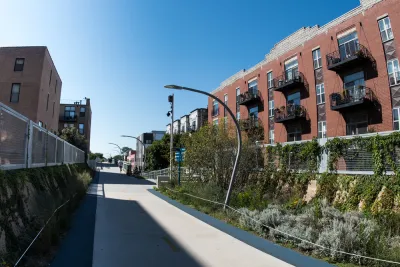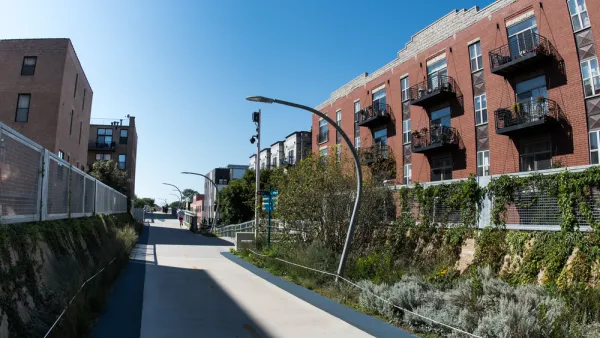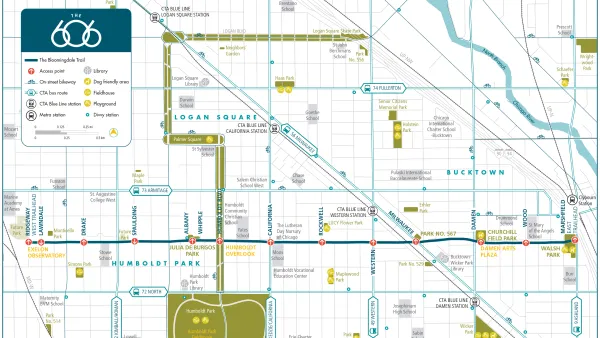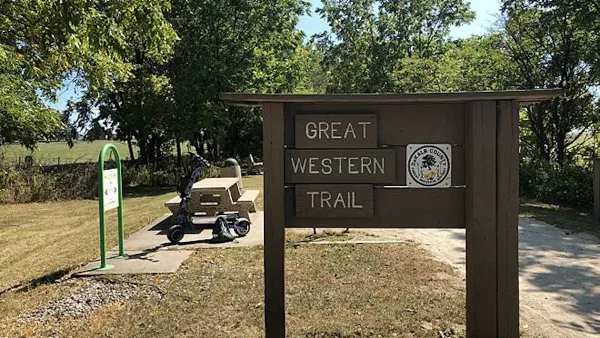Because the rails to trails project left housing up to the market, rising rents were inevitable, claims a new report.

Logan Square rents and property values have been on the rise, particularly in the part of the neighborhood around the 606. Whether or not the trail and its planners deserved any of the blame for that has been a subject of debate in the area for some time. A new report argues that it was a cause of rising costs and its were to blame. “Lower-cost housing was bound to be pushed out of neighborhoods along the 606 trail by more expensive replacements because of the way the rails-to-trails project was planned, a pair of academics claim in a scholarly journal,” Dennis Rodkin reports in Crain’s Chicago Business.
University of Illinois Professor Alessandro Rigolon contends that the project’s builders were content to see it as a purely parks and infrastructure venture and to leave housing prices to ride the market. Rigolon and his co-author, Professor Jeremy Nemeth of the University of Colorado, even titled the piece after a quote from a representative for the Trust for Public Land that did much of the work on the project who said, “We're not in the business of housing.”
Critics of the report (from the Trust for Public Land and elsewhere) point out that the neighborhood was already gentrifying and that some of the rising land value came from the neighborhood recovering from the great recession. Useful context to be sure, but not enough to convince observers that the trail didn’t force out residents.
FULL STORY: Was gentrification around the 606 inevitable?

Analysis: Cybertruck Fatality Rate Far Exceeds That of Ford Pinto
The Tesla Cybertruck was recalled seven times last year.

National Parks Layoffs Will Cause Communities to Lose Billions
Thousands of essential park workers were laid off this week, just before the busy spring break season.

Retro-silient?: America’s First “Eco-burb,” The Woodlands Turns 50
A master-planned community north of Houston offers lessons on green infrastructure and resilient design, but falls short of its founder’s lofty affordability and walkability goals.

Test News Post 1
This is a summary

Analysis: Cybertruck Fatality Rate Far Exceeds That of Ford Pinto
The Tesla Cybertruck was recalled seven times last year.

Test News Headline 46
Test for the image on the front page.
Urban Design for Planners 1: Software Tools
This six-course series explores essential urban design concepts using open source software and equips planners with the tools they need to participate fully in the urban design process.
Planning for Universal Design
Learn the tools for implementing Universal Design in planning regulations.
EMC Planning Group, Inc.
Planetizen
Planetizen
Mpact (formerly Rail~Volution)
Great Falls Development Authority, Inc.
HUDs Office of Policy Development and Research
NYU Wagner Graduate School of Public Service




























